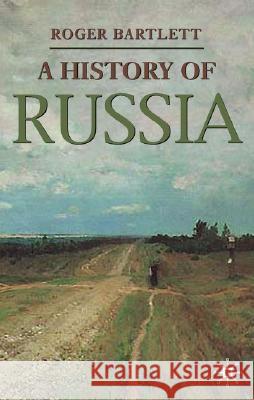A History of Russia » książka
topmenu
A History of Russia
ISBN-13: 9780333632635 / Angielski / Twarda / 2005 / 336 str.
A History of Russia
ISBN-13: 9780333632635 / Angielski / Twarda / 2005 / 336 str.
cena 438,22
(netto: 417,35 VAT: 5%)
Najniższa cena z 30 dni: 421,40
(netto: 417,35 VAT: 5%)
Najniższa cena z 30 dni: 421,40
Termin realizacji zamówienia:
ok. 30 dni roboczych.
ok. 30 dni roboczych.
Darmowa dostawa!
A concise yet thorough history of Russia, from its beginnings to the present day











